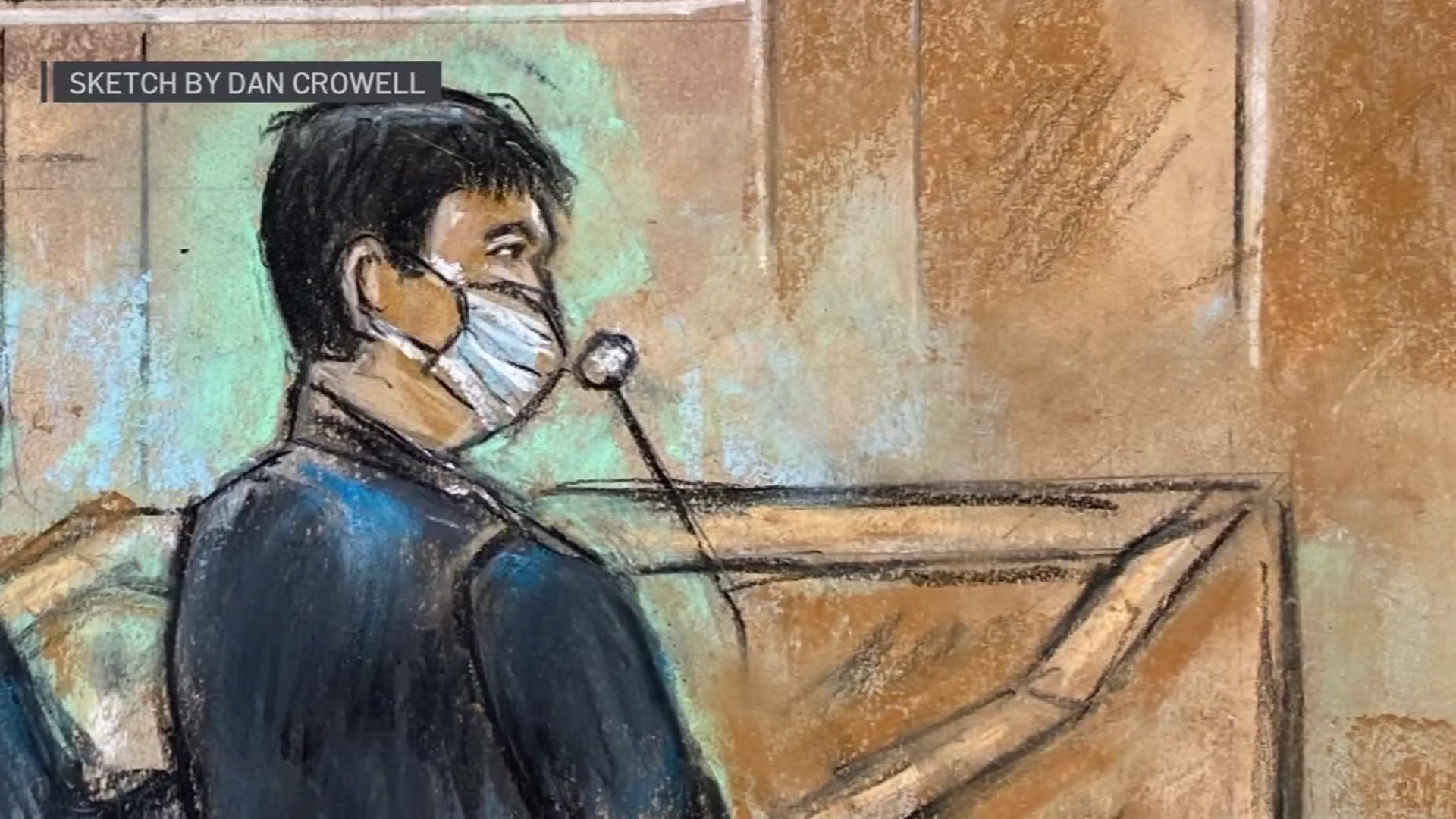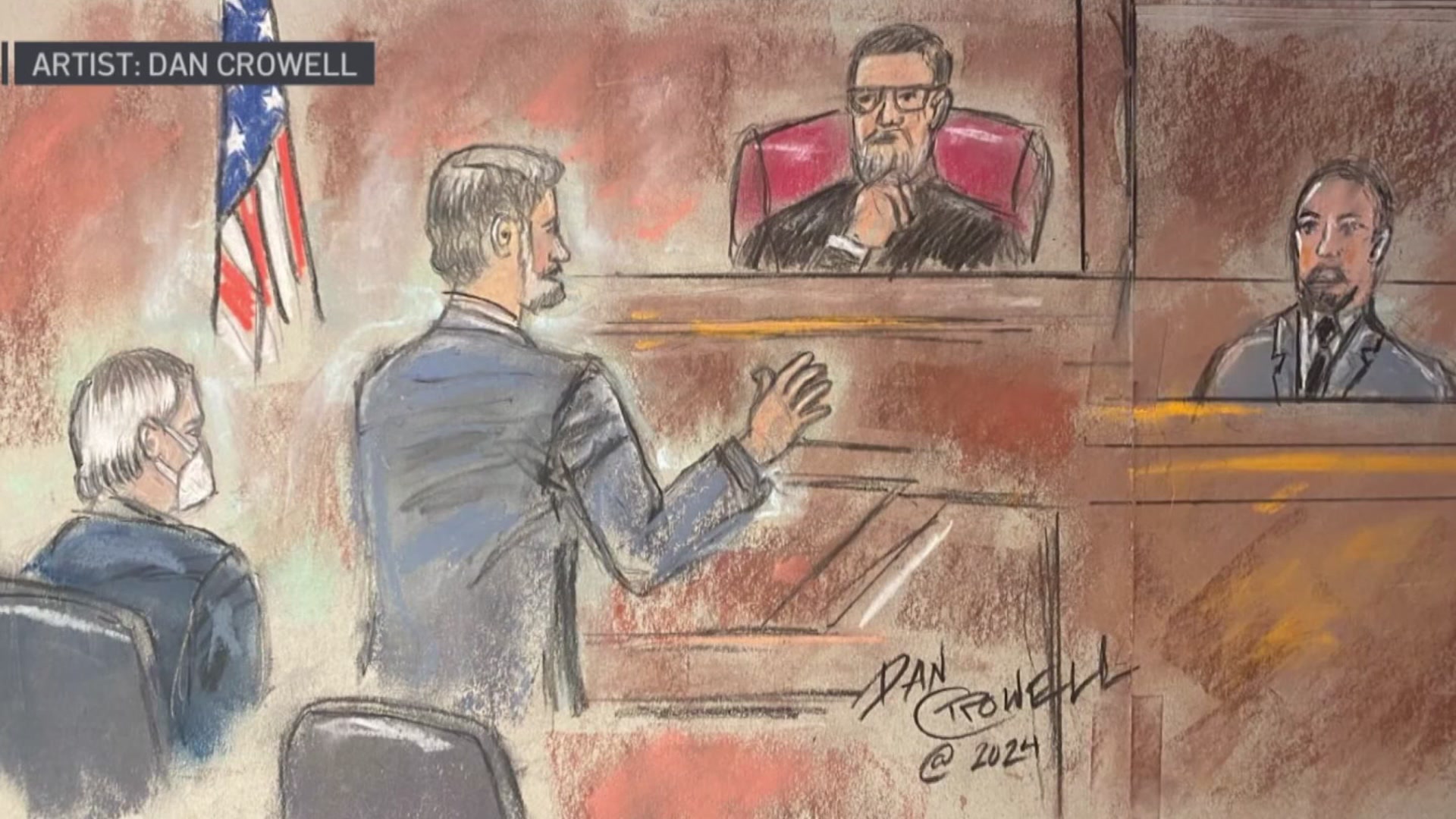Both sides have rested in the federal trial of a Dallas doctor accused of "poisoning" IV bags, causing several patients to suffer cardiac emergencies, and implicated in the death of a fellow doctor.
Doctor Raynaldo Ortiz opted not to take the stand in his own defense late Wednesday afternoon.
Ortiz is accused of injecting potentially heart-stopping drugs including bupivacaine and/or epinephrine into IV bags and placing them in a warming bin for unsuspecting medical staff to retrieve and use on other doctor’s patients.
Ortiz is charged with ten federal counts of tampering with a consumer product and adulteration of a drug.
Get DFW local news, weather forecasts and entertainment stories to your inbox. Sign up for NBC DFW newsletters.
The alleged crimes occurred in August 2022 at Baylor Scott & White SurgiCare in North Dallas.
Prosecutors say his crimes were captured on dozens of video surveillance clips inside the surgical center, although Ortiz is never seen on camera injecting IV bags.
If convicted, Ortiz faces life in federal prison.
His defense team spent the day calling several people to the stand, hoping to convince jurors of the former anesthesiologist’s innocence.
Elizabeth Molina, a Dallas Police Department fingerprint expert took the stand first. Molina analyzed three IV bag wrappers collected in the alleged incidents. She testified she was only able to identify one "suitable" fingerprint on a single plastic wrapper.
A comparison found the fingerprint did not match Ortiz’s fingerprint.
Molina testified she was not provided anyone else’s fingerprint, including other medical staff, to analyze.
Ortiz is accused of tampering with five bags, only one of which reportedly went unused.
The alleged victims range in age from 18 to 78 and underwent "low-risk" procedures at the surgical center.
The last patient linked to "tainted IV bags" is an 18-year-old man who ‘crashed’ during a rhinoplasty procedure to fix his broken nose on August 24, 2022. The young man survived and was transferred to the hospital.
Ortiz is also implicated in the death of fellow anesthesiologist Melanie Kasper in June of 2022.
Detectives say Kasper, who did not know Ortiz, took an IV bag home to rehydrate herself and died in front of her husband. An autopsy found a lethal dose of bupivacaine in her system.
The reportedly "disgruntled" doctor is also suspected but not charged in 13 other concerning and unexplained emergencies at the surgical center between May and August of 2022.
Ortiz pleaded not guilty to the charges.
Renowned anesthesiologist Dr. Bobbie Jean Sweitzer took the stand Wednesday morning for the defense.
Ortiz’s defense team asked Sweitzer to analyze clinical documents showing how medical staff responded to complications during four surgeries.
Based solely on the notes and documentation provided to her, Sweitzer concluded anesthesiologists appear to have overreacted and may have even made the situation worse, triggering complications.
Sweitzer also concluded, based on medical records provided by the defense, that cardiac emergencies could have happened because of patients’ underlying or undiagnosed health conditions like hypertension.
Sweitzer contends health conditions coupled with the drugs or doses of drugs given by medical staff before, during the procedure or during spikes in blood pressure or heart rates could be to blame for the complications and not IV bags being ‘poisoned.’
She also pointed to a study that found COVID-19 can cause complications for a patient receiving anesthesia.
At least one patient, an elderly man also diagnosed with other risk factors, tested positive for COVID-19 only after complications during his surgery.
Sweitzer testified her review of the other cases considered suspect between May and August and found no pattern or link, concluding symptoms differed from the four cases Ortiz is accused in.
Sweitzer faced a blistering cross-examination where the prosecutor pushed back on her assertion doctors may have made things worse during the medical emergencies only because they did not know the IV bags being used on their patients had been tampered with.
Heather Harris, a forensic chemist, was among the last witnesses to testify for the defense.
The government sent allegedly tampered-with IV bags and untampered bags to SWIFS and NMS labs to be analyzed for drugs, including bupivacaine, epinephrine and lidocaine.
Harris explained to jurors the science behind the testing of IV bags, and the SOP, standard operating procedures, labs are encouraged to follow so as to not appear to be biased one way or another.
She reviewed lab notes and immediately noted issues, including how the report had been filled out by a Ph.D. graduate student.
It is something she would never allow, she testified.
When it comes to the 18-year-old patient’s case, Harris disagrees with the lab’s conclusion of detecting epinephrine in the bag.
“I would not call this positive for epinephrine,” she testified.
The defense’s final witness was OBGYN Dr. Steven Trostel who is friends and worked with Ortiz 15 years ago.
Trostel spoke of Ortiz as a proactive doctor known to prepare for procedures ahead of time, adding it was not unusual for Ortiz to gather his own IV bags and vials.
The government called a handful of rebuttal witnesses before closing out the case, including SurgiCare North Dallas surgical technician Paul Monaco.
Monaco told jurors he worked with Ortiz twice a week between 2016 and 2022, up until his arrest.
Ortiz, he argued, was never one to help others or go above and beyond his responsibilities, contrary to Trostel’s testimony.
Chief District Judge David Godbey concluded the day by sending jurors home and instructing them to return Thursday at 9:30 a.m., presumably for closing arguments and deliberations.




